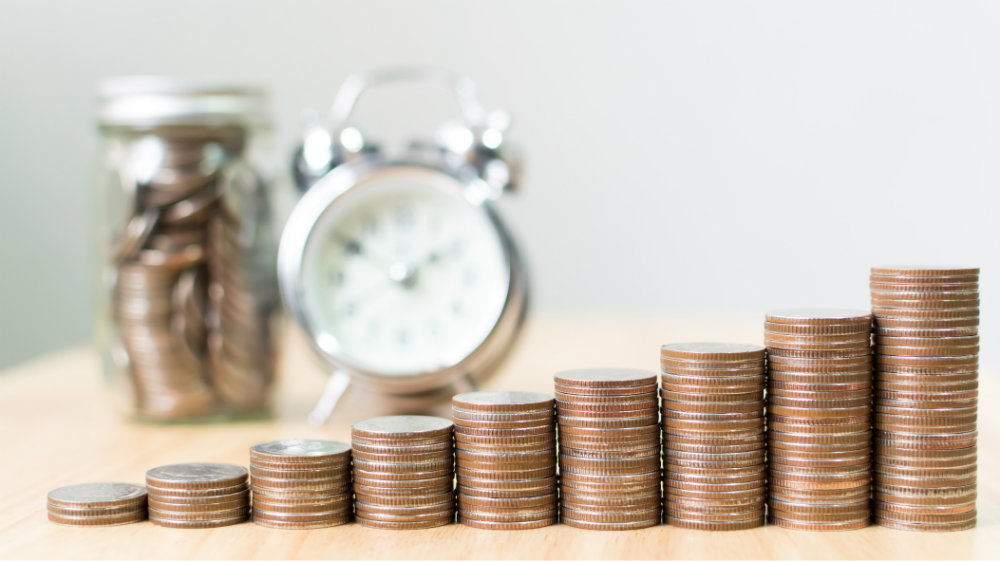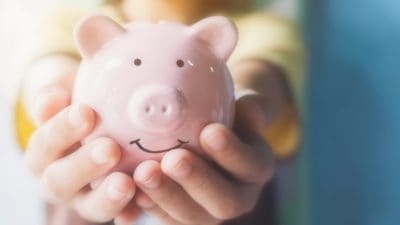If “saving money” was your New Year’s resolution, then more power to you. I’d never get in the way of someone trying to put a little extra aside, especially if you’re building an emergency fund or saving for a down payment.
But saving money in 2022 comes with one big caveat—if you’re putting money in a savings account, don’t expect that money to grow.
For one, low interest rates in savings accounts are making money grow at a snail-pace. Though the Bank of Canada is expected to raise the prime rate soon, it could take a while before banks offer high-yield savings accounts proper to their name.
And then there’s inflation. So long as inflation is making life more expensive, it has the unintended effect of devaluing your savings. This is especially true for static down payments, which become less effective as home prices grow.
So what can a saver do? If you’re looking to grow your savings, here are four places you can put your money in 2022.
GIC ladders
A guaranteed investment certificate (GIC) can help you earn snag a higher interest rate than a regular savings account. Of course, there’s a catch—you have to lock your money up for a certain period of time (called “terms”).
Terms can last a few months. Or they can last a few years. In general, the longer your GIC term, the higher your interest rate. But if you lock your money up for too long, don’t expect to withdraw without complications. Unless you can convince your GIC-issuer your withdrawal is an absolute emergency, you’ll most likely forfeit the interest you earned.
Most people can’t afford to lock their savings away for a few years, which is where ladders come in handy. With a “ladder” strategy, you take out multiple GICs, each with different terms. For instance, you could put equal amounts of savings into a six-month GIC, a one-year GIC, a 1.5-year GIC, and a two-year GIC.
After six months, your six-month GIC will reach maturity, and you can access your savings. At that point, all of your GICs will be six months closer to maturity, meaning you technically have a six-month GIC, a one-year GIC, and a 1.5-year GIC. If you don’t need money at the moment, you can use savings from your six-month GIC to buy another two-year GIC. In this way, every six months, you buy a new two-year GIC, and your money won’t stop growing.
Having multiple GICs helps you take advantage of the higher rates on long-term GICs, while also ensuring you don’t lock your savings longer than you can afford.
This can be a lucrative strategy. In this lending climate, however, interest rates might be too low to really earn money., Still, I would keep this strategy in the back of your head, and when interest rates go up — and it looks like they might soon — you can put it into practice.
Dividend stocks
A dividend stock pays you a certain percentage simply for owning shares in its company. Yes, this is in addition to any price movements within the stock itself.
The best dividend stocks will have a generous payout while also appreciating in value. To find one, look for companies that are firmly established, that have a long history of paying out dividends, and that have a fairly high payout ratio. Right now, a good dividend yield would be around 3.75% to 5%.
REITs
As we all know, real estate is hot right now. It’s so hot, in fact, Canadian investors are making a fortune buying houses, flipping them, turning them into rental property, or just dangling them above potential homebuyers in the form of a blind auction.
Of course, not everyone has time to pound nails and redo bathrooms, nor do we have time to suffer through the home buying process in order to gain a worthy investment.
For those who can’t make real estate a side gig, you could buy shares of a real estate investment trust (REIT). A REIT is basically a company that manages numerous real properties. Like an ETF or a mutual fund, you pool your money with other investors, and you earn capital gains when the REIT company does well.








